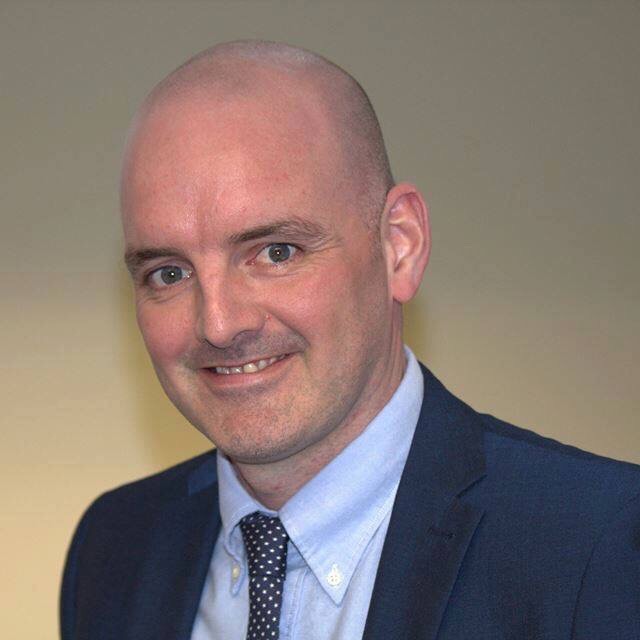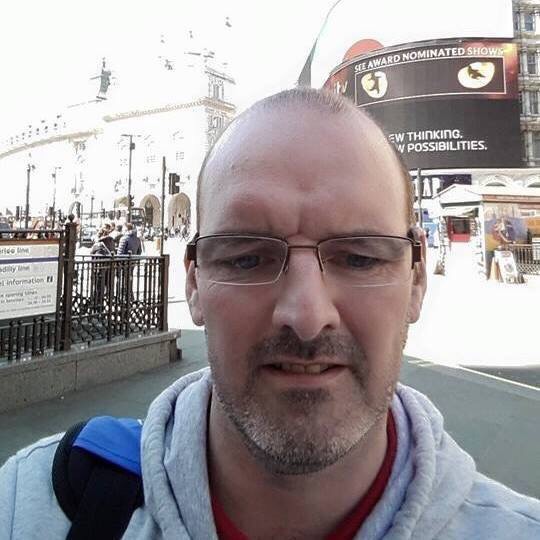
An oil and gas worker who tried to take his own life is urging the industry to speak out about issues around mental health.
Paul McMonagle believes most people in the sector are reluctant to discuss concerns for fear of being stigmatised or losing their jobs.
The 42-year-old, who works for Aberdeen-headquartered energy services firm Wood, wants to help change the culture in the industry.
He said: “I’ve spoken at my own work about my mental health story and what I noticed is afterwards people will open up to me and explain what they are going through.
“There’s so much gossip in oil and gas, along with many other industries, and people don’t want to become the subject of that.
“The main thing is the macho culture. The fear is that they would lose their job or people will be mocked.
“Once they hear people speak up they are more open to talking about it because they relate to it. If it’s not them then it might be a family member going through something.”
Paul is in talks with Wood, who he said have been supportive of him sharing his mental health story, about helping develop their global wellbeing strategy.
He has spent more than 26 years in the industry, working for a range of companies, and is currently based at a refinery in Grangemouth.
Paul was diagnosed with a “crippling” anxiety disorder at an early age which, coupled with partial epilepsy and blindness, led to him trying to kill himself in his mid-30s.
For 20 years he didn’t share with anyone what he was going through, even with his family, but is now encouraging others to open up.
“When I was 20 I became partially blind, losing 80% of vision in my left eye and at 22 I suffered from epilepsy,” he said.
“As I went through that time I started to self-medicate. I was drinking a lot and became an alcoholic, I took drugs as well.
“It had been enforced to me that I would never get better.”
However Paul is now on a path to recovery, and credits author and human behaviour coach Tony Selimi with largely curing him of his anxiety.
He is now aiming to pass on his teachings to help address the “massive social problem” of stigma around mental health issues and become a role model for others.
He added: “I share my story and I write articles in Wood’s internal site. A lot of people are fearful to talk about mental health within the oil and gas industry. I get people at all levels telling me their stories.
“I have in the past had people telling me I shouldn’t be talking about it and that it is for home, but you bring everything from your home life into your work life.
“Wood is taking the subject of supporting employees’ mental health seriously.
“At same time companies within every industry do struggle with this and struggle with how to support their employees because there is such a stigma attached to even talking about mental health.”
FTSE 250-listed Wood turns over £10 billion-plus annually and employs in excess of 60,000 people in more than 60 countries.
INDUSTRY RESPONSE
Paul’s employer Wood said it wants to help raise awareness around these issues while the wider oil and gas sector is also taking steps to address stigma around mental health.
A spokeswoman said: “Wood is committed to open conversations around mental health and creating an environment where our employees feel comfortable to speak up.
“As part of our focus on employee wellbeing, we aim to raise awareness of mental health issues and encourage our people to take time to care for one another, learn about mental health and recognise the signs if someone is struggling.”
Meanwhile, industry body Oil and Gas UK said Wood is one of many of its members urging workers to speak up.
Health and safety manager Trevor Stapleton said: “Many of our members have implemented mental health awareness initiatives focused on developing an open and inclusive culture at work, which is supportive of individuals experiencing mental ill-health.
“Oil & Gas UK is enabling industry to share good practice and experience of what has been shown to be effective through work being done by our Occupational Health Group.”
Anyone affected by these issues can contact Samaritans confidentially for free.
The charity is working to encourage more men who are at risk to seek support.
A spokeswoman said: “Samaritans is currently running a campaign, called Real People, Real Stories.
“The campaign sees men who have overcome tough times share their stories to encourage men, who are most at risk of suicide, to seek help by contacting Samaritans 24/7 free on 116 123.
“At Samaritans we understand the value of talking and the power of human connection. Just two people talking can really help that person to stop, breathe and start to see a way through their problems. Samaritans gives people the space to be themselves. We won’t judge or tell you what to do, we’re here to listen.
“Anyone can contact Samaritans for free in confidence by phone or email jo@samaritans.org or visit www.samaritans.org to find details of your nearest branch where you can talk to one of their trained volunteers face to face.”
Recommended for you



